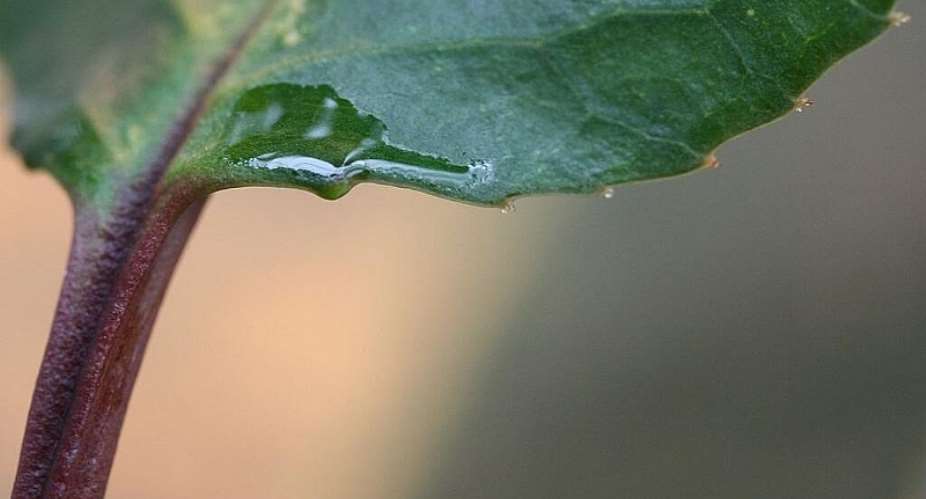Cameroon's biodiversity and traditional knowledge have long been exploited by foreign firms. To help protect its natural wealth, the country is taking new steps to enforce the Nagoya Protocol – a decade-old international treaty that ensures local communities benefit from sharing their genetic resources.
Home to more than 11,000 species of plants, birds, amphibians and fish, Cameroon is a trove of biodiversity – "genetic resources" that are indispensable for the country's social and economic wellbeing.
International pharmaceutical companies have shown strong interest in Cameroon's plant-based medicines, used by an estimated 80 percent of people in rural areas.
The bark of prunus africana – the African cherry tree – has long been a staple of traditional medicine to treat prostate cancer, for instance, and is now widely exported for use in herbal remedies.
"Every year, an average of 514 tonnes of prunus africana leaves the country," says Aurélie Taylor Patience Dingom, an expert in traditional knowledge at Cameroon's Environment Ministry.
While companies buy prunus africana in Cameroon for around 2 euros a kilogram, its value jumps to approximately 400 euros when sold in drug-form.
"The worrying issue is that none of that benefit is coming back to the communities where the prunus africana was harvested," says Dingom, whose job includes monitoring the implementation of the Nagoya Protocol.
She cites the example of Brazil, where 1 percent of the net income generated is paid into a national fund that is shared with the communities where the plant is grown.
"Cameroon needs to be able to carry out similar negotiations so that foreign firms do not continue to rip off our natural wealth," Dingom says.
Uphill challenge
Using both the parliament and institutional bodies, authorities in Cameroon say they've spent the past three years looking to ensure the Nagoya Protocol is able to operate as it should.
Despite a 2021 law to this effect – and efforts to set up an institutional framework – the job is still far from over.
In response, the Global Environment Facility is funding a $200,000 project to support the Nagoya Protocol in the South West and Far North regions.
It allows researchers in Cameroon to study certain species such as the irvingia wombolu, or "bush mango" – whose leaves, roots and bark have been used for thousands of years to treat scabs and skin pain.
The mangos' fibrous pulpy fruit, meanwhile, is used in Cameroonian and Nigerian cuisine to make traditional soups, sauces, juice, wine and jams.
“We sell most of our bush mango to Nigeria, but recently we're getting a lot of demand from Europe,” says Thomas Arrey Ayuk, the CEO of a company that exports the mangoes.
Ayuk is hopeful that, once the Nagoya Protocol has been fully implemented, the farmers who grow the fruit will benefit from the rising demand.
He says European firms want to buy "hefty quantities" of the mangoes to make medicines to treat obesity, as well as to manufacture cosmetics.
“They need about 500 tonnes every year," Ayuk tells RFI – adding that the mangoes' value skyrockets once they are turned into medicines.
“Our partners in Europe say they will buy at a much higher rate and when they add value to the mango in terms of making medicine, they will come back and provide the community with some benefits ... maybe by building schools or hospitals.
"That's why I am fighting to make sure that farmers do not throw their produce to Nigeria anymore.”
Leveraging resources
Cameroon has so far signed five deals with French and Swiss cosmetic companies says Dingom, of the Environment Ministry – adding it was critical for the country to leverage the value of its biological resources.
“Our governments must understand that exploiting Africa's vast biological resources in line with the Nagoya Protocol can unlock the continent's economic potential,” she says.
One of the first deals was signed in 2012, when French perfume company V Mane Fils teamed up with the Environment and Rural Development Foundation (ERuDef), a non-profit in Central Africa, to develop echinops giganteus, which is used in food and cosmetics sectors worldwide.
ERuDef president Louis Nkembi said V Mane Fils had also committing to return a quarter of the revenues it made from the wild plant, which was now being farmed.
“The plant species was inventoried, studied and this eventually led to the company signing an agreement with the government of Cameroon in 2015 to exploit a limited quantity to test the viability of this product.”





 Election 2024: NPP done so much and deserves victory — Akufo-Addo
Election 2024: NPP done so much and deserves victory — Akufo-Addo
 AG has 'killed' Cecilia Dapaah matter; 'abrupt end' fits clearing-agent pattern—...
AG has 'killed' Cecilia Dapaah matter; 'abrupt end' fits clearing-agent pattern—...
 Former Weija-Gbawe MCE Patrick Kumor dies
Former Weija-Gbawe MCE Patrick Kumor dies
 Ghanaian Musician Itztiffany’s sister jailed in US
Ghanaian Musician Itztiffany’s sister jailed in US
 Cecilia Dapaah scandal: Withdraw letter to EOCO – Martin Kpebu to AG
Cecilia Dapaah scandal: Withdraw letter to EOCO – Martin Kpebu to AG
 IMF calls for tariff adjustment to enhance Ghana's energy sector cost recovery
IMF calls for tariff adjustment to enhance Ghana's energy sector cost recovery
 SML-GRA Contract: Insufficient evidence to prosecute government officials — Afen...
SML-GRA Contract: Insufficient evidence to prosecute government officials — Afen...
 Ketu North: NDC holds ‘Victory Health Walk’ ahead of election 2024
Ketu North: NDC holds ‘Victory Health Walk’ ahead of election 2024
 Tema Port truck drivers to embark on sit-down strike on May 6
Tema Port truck drivers to embark on sit-down strike on May 6
 Walewale NPP: Constituency Chairman endorsement of Tiah Mahama as PC prejudicial...
Walewale NPP: Constituency Chairman endorsement of Tiah Mahama as PC prejudicial...
